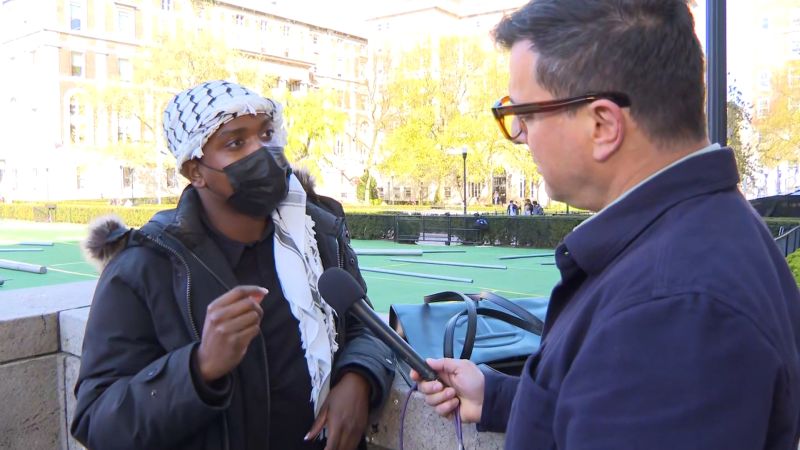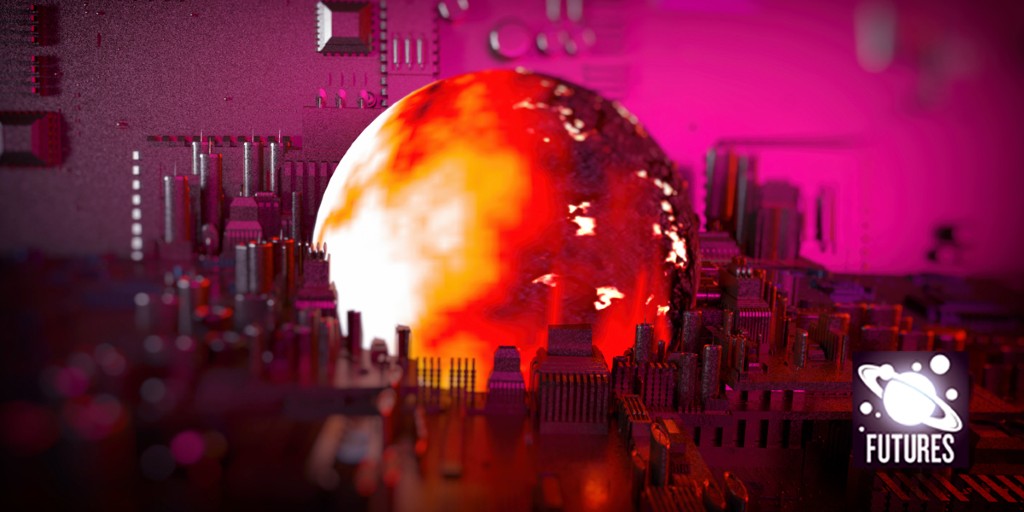Chesik is on the help desk when the white-haired man comes in with a raggedy-ass server in a shopping cart.
“Whatchu got?” Chesik asks.
“A dying world.” The man shakes out a faded blue raincoat, dripping water all over the carpet.
Chesik hauls the server onto the workbench. He’s seen blades before, even some old beige boxes, but never sea-blue sheet metal held together with baling wire. It hums under his hands, and he wonders how it has stayed on and dry, given the weather.
He pops the side panel and shines the bench lamp inside. The case contains two motherboards at right angles. They’re both studded with heatsinks and cooling fans, and connected by a knotted mass of wires that not even Alexander the Great’s sword could slice.
“I’m not sure I can do much with this,” Chesik says.
“Billions will perish.” The man’s voice rustles like the wind blowing through autumn leaves, and Chesik isn’t sure he’s heard him accurately.
The man snorts, and it’s as if Chesik has disappointed his grandfather.
“I’ll take a look.” Chesik hooks up a monitor and keyboard.
The monitor comes to life immediately, flickering from screen to screen of heroes, villains and NPCs stomping and flying and fighting their way through dozens of landscapes and worlds. The resolution is shockingly good, even before you consider the age of the hardware. It pains him to turn away from the interface, but Chesik brings up the system diagnostics. The riot of colours is replaced by a green-on-black text interface. RAM at 30% utilization, which ain’t nothing. Ten terabytes of hard disk space, nearly filled. Real curious, though, is the CPU temperature. Damn near shutdown levels.
Goph, the store manager, comes out of the back room, his usual scowl in place. “Where’d that relic come from?”
“He’s a customer,” Chesik says. “In for a consult.”
“The server, I mean. We can’t fix hardware that old.”
“We have no choice,” the customer says.
“Yes, we do,” Goph says. “Spec him out new hardware.”
The customer’s knuckles whiten where they grip the shopping cart. “A new server cannot support the same world.”
“Let me poke at this.” Chesik scrolls through the diagnostics. “Maybe run a malware cleaner.”
Goph doesn’t look convinced.
“I can pay.” The customer holds out a wad of currency.
“Fine. But charge the full rate.” Goph shambles back to the VR porn in his office. Man don’t care about anything but his bottom line.
The server diagnostics show a trendline of climbing temps. Whoever built this thing went in for resilience, but silicon and carbon only last so long without needing maintenance.
“Motherboard is near burnt out, and the socket style is too old to buy a replacement CPU,” Chesik says. “You did this overclock yourself?”
“It has run this way for ages,” the customer says. “I have changed nothing.”
He’s full of crap, Chesik figures. As old as this hardware is, and as complex as the game it’s running is, it had to be overclocked to hell and back.
“Gonna be expensive to fix.” The job ain’t much, but it puts bread on the table and beer in the fridge. Chesik can’t afford to lose it by giving away free stuff.
“How expensive?”
Chesik quotes the standard price for antivirus and antimalware clean-up.
The customer produces the wad of currency again. It’s green and blue, some kind of funny money from a board game or something. He holds it up, as if Chesik should know what to do with it.
“I want to help you,” Chesik says. “Really, I do, but I can’t take that. You got anything else? Dollars? Bitcoins?”
The customer sighs with defeat. “We shall go. Our apologies for the trouble.” He drags the server off the table, stumbling under its weight.
Something about his movements makes Chesik see an image of his future self. This thing might just host some second-rate MMO, but how you gonna sleep at night knowing you let all those players lose their world? Be like smashing up the Mona Lisa or pouring gasoline on the Great Barrier Reef to let it just roast to death.
“Hold up.” Chesik intercepts the server and guides it back to the workbench. “We’ll downclock it. It’ll still run hot, but it’ll keep running for a while longer. Maybe give you time to work out something better long-term.”
“It will be stable?” the customer asks.
“Ought to be.”
There’s a box of parts under the counter, the second-hand stuff that’s too worn to sell but too good to throw out. Chesik sets it on the counter and starts pulling out parts.
The diagnostic menu lets him take half the machine offline while the other keeps critical systems running. He peels the heatsinks from the offline CPUs and demonstrates how to apply a new coat of thermal paste and attach more efficient ones. He explains as he works, tidying cables and replacing old fans. All the little things that add up over time.
“You wanna keep it running,” Chesik says, “you gotta actually take care of it. Don’t overload it, keep good airflow, watch your temps.”
The customer bows his head. “I will.”
Chesik believes him.
When they’re finished with the maintenance, the diagnostics show the CPU temps out of the critical range.
The customer loads the server into the cart.
“What’s really running on this?” Chesik asks.
“A simulation.”
“Of?”
The customer pauses in the doorway, framed by the light of the afternoon Sun peeking out from behind the clouds. “Everything.”
Chesik drops back into his chair. The air conditioning hums steadily. He isn’t convinced that he just saved the world, but he isn’t sure he didn’t, either.







More News
Judge dismisses superconductivity physicist’s lawsuit against university
Future of Humanity Institute shuts: what’s next for ‘deep future’ research?
Star Formation Shut Down by Multiphase Gas Outflow in a Galaxy at a Redshift of 2.45 – Nature